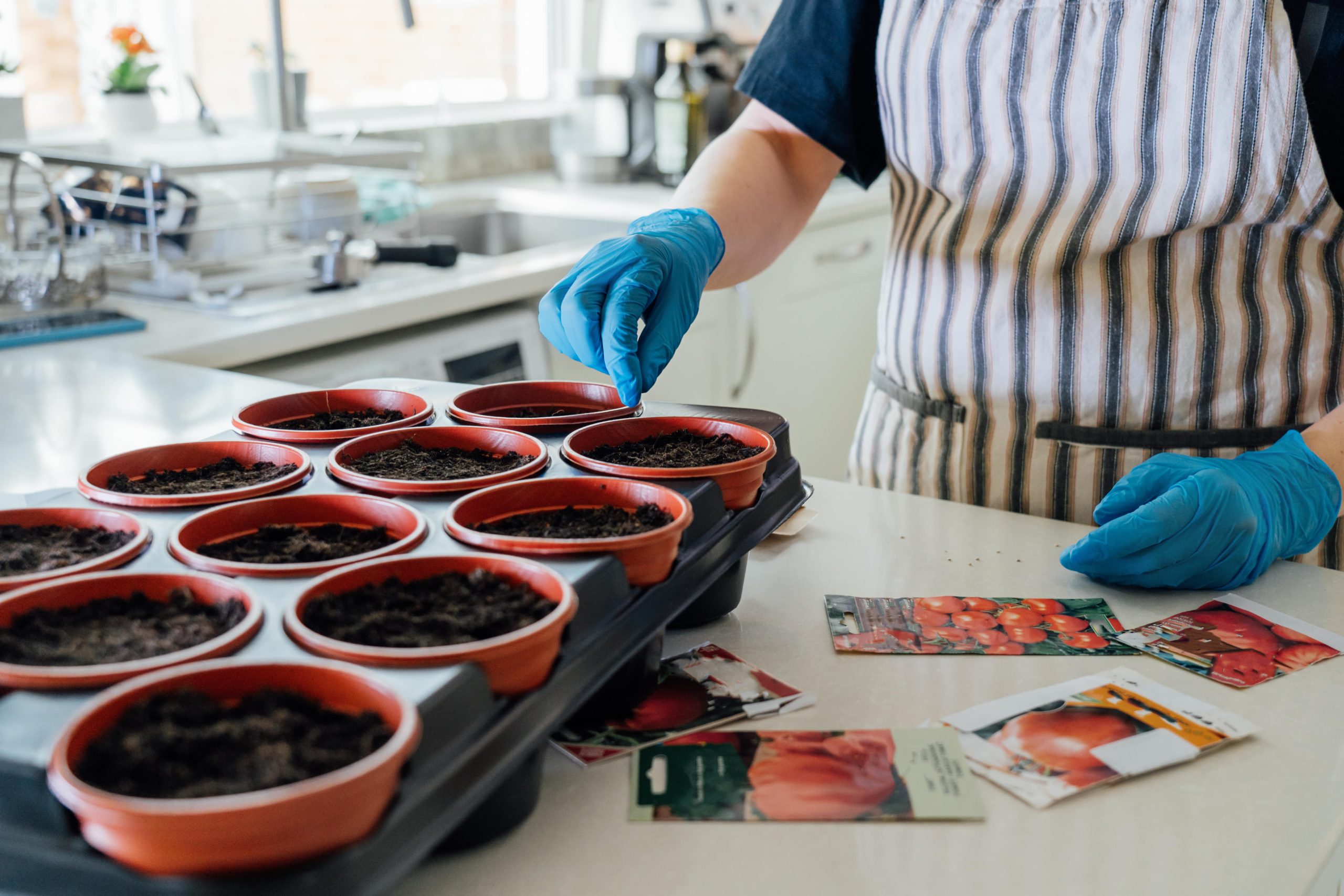Growing plants in the kitchen is a great way to add fresh ingredients to your meals and add a natural touch to your kitchen. Even if you have limited space, you can grow plants in your kitchen with the right techniques and creative solutions. Here are some tips for growing and caring for plants in the kitchen:
Choosing the Right Plants
When growing plants in the kitchen, it is important to choose plants that are suitable for your space and light conditions:
– Fresh Herbs: Fresh herbs such as basil, mint, thyme and parsley are perfect on kitchen counters and windowsills.
– Vertical Growing Plants: Plants that grow vertically, such as rosemary or lavender, take up little space and add a pleasant aroma to your kitchen.
– Hanging Plants: Hanging plants such as pothos and ivy can be grown on wall shelves or in hanging baskets and offer a decorative look.
Using Space Efficiently
When growing plants in the kitchen, it is important to use the space most efficiently:
– Vertical Gardens: Arrange your plants vertically using wall shelves, vertical garden systems or hanging baskets. This allows you to grow more plants without taking up floor space.
– Window Sills and Parapets: Window sills and parapets offer excellent space for plants. You can display your plants in these areas using small pots or plant shelves.
– Multi-Storey Pots: Multi-Storey pots allow you to grow multiple plants together and save space.
Choosing the Right Pot and Soil
Choosing the right pot and soil is important for the healthy growth of your plants:
– Drained Pots: Prevent the roots of your plants from being submerged by using pots that provide good drainage. Choose pots with drainage holes so that excess water can drain out of the pot.
– Light and Fertile Soil: Use light and fertile soil for your plants. Choose soil mixes that are especially suitable for herbs.
– Pot Size: Use pots that are sized appropriately for the root development of your plant. Too large pots can hold too much water and cause root rot.
Light and Watering Needs
It is important to meet the correct light and watering needs of your plants for healthy growth:
– Light: Provide the right light level according to the needs of your plants. Some plants need direct sunlight, while others grow better in indirect light. Research the light requirements of your plant type and position them in appropriate places.
– Watering: Regularly monitor the watering needs of your plants. While some plants, such as basil, need regular water, plants such as rosemary need less water. Check the moisture level of the soil and water at appropriate intervals.
Plant Care and Nutrition
Regular care and nutrition are important for your plants to stay healthy and vibrant:
– Regular Pruning: Encourage healthy growth by regularly pruning your plants. Protect the plant’s energy by cutting off dry or diseased leaves.
– Fertilization: Provide your plants with the nutrients they need by fertilizing them regularly. Support the development of your plants by using organic fertilizers or liquid plant nutrients.
– Disease and Pest Control: Take precautions against diseases and pests by regularly checking your plants. You can combat pests using natural insecticides or soapy water.
Add fresh flavors to your kitchen with Berrak and bring nature into your home! Follow these tips for a kitchen full of healthy and vibrant plants.


